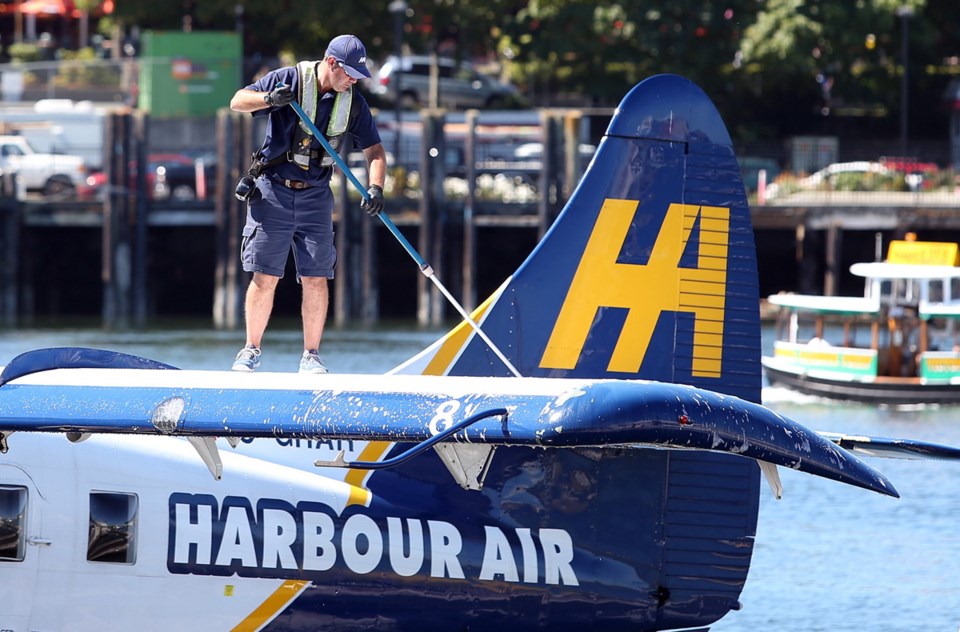Greg McDougall, founder and CEO of Harbour Air, will be the test pilot for a 750-horse-power, electric powered float plane set to launch on Wednesday.
“When this thing flies it will be the first time on Earth that this happens,” said Roei Ganzarski, head of magniX, the company that built and helped install the electric motor. “How could you not get excited about that?”
Harbour Air and Washington state-based magniX began work on the ePlane project at the start of this year. The goal was to fit one of Harbour Air’s DHC-2 de Havilland Beaver float planes with an electric motor that could be used on one of the airline’s shorter flights. Harbour Air is among the largest all-seaplane operators in the world, flying to 12 destinations. The company’s goal is to convert the entire fleet to electric-only.
Ganzarski said the aviation industry was responsible for 12 per cent of all U.S. carbon emissions, with three quarters of all commercial flights being less than 1,600 kilometres. “With magniX’s new propulsion systems coupled with emerging battery capabilities, we see tremendous potential for electric aviation to transform this heavily trafficked, middle-mile range,” he said.
Most Harbour Air flights are less than an hour, and mostly over water, making emergency landings more feasible. However, McDougall said electric motors are extremely reliable.
“They don’t have the same number of moving parts as a turbine or piston engine and they have much better durability,” McDougall said in a statement. “The future of transportation in general, certainly in aviation, is electric power.”
Harbour Air spokeswoman Samantha Kent said Transport sa���ʴ�ý had approved the test flight on the Fraser River from the Harbour Air dock south of the Vancouver airport, subject to several restrictions, including not flying in the rain. That meant the exact time of the flight would be weather-dependant.
McDougall has 15,000 hours of experience flying Beaver float planes and has done test-flying before.



